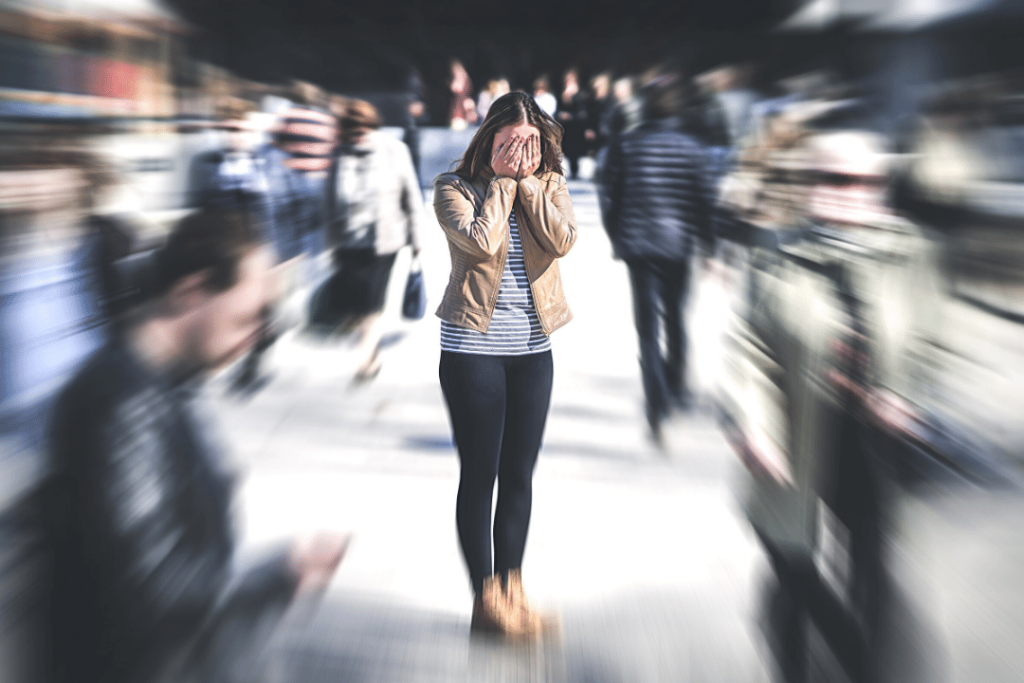Anxiety and depression are a growing problem around the world today. A multitude of factors can cause a range of emotional disorders ranging from a simple low mood to serious, life-threatening mental illness. Depression can be debilitating and is one of the leading causes of disability worldwide. More than 264 million people suffer from depression worldwide – and we only really know about the ones who seek help – the numbers are likely to be much, much higher.
Causes of Depression and Anxiety
The relationship between physical and mental or emotional illness is complex, and the causes behind all aspects of illness can be varied and multi-faceted. There are a few common triggers and causes for depression and anxiety, but there’s no right or wrong way to react to any situation, and there are no rules about how you might be affected by events in your life.
- Modern Life
It’s a bold, sweeping statement, but it’s no secret that modern life causes mental illness. Never before in the history of humanity have we been more detached from other people, more reliant on technology, more subjected to unnatural lights and sounds, and less active. The bright lights and constant connectivity of mobile phones can have seriously affect sleeping patterns and mental health. It’s great to have social connections and knowledge at our fingertips, but we need to control our reliance on intrusive technology and recognize its impact on our health.
- Poor Sleeping Patterns
One of the many ‘Catch-22’ aspects of emotional ill-health – feeling down can affect your sleeping patterns, and poor sleep can trigger serious bouts of depression. It’s a cycle that needs to be broken, and it’s definitely possible to beat insomnia.
- ‘Seasonal Affective Disorder’
Humans are no different from any other animal in the way they’re affected by the natural changes in the environment. A huge number of people notice that their mood is affected by long, dark nights, by extended periods of cold and rain. Bad weather and short hours of sunlight also mean you’re less likely to get outside and enjoy healthy activity; just getting outside for a little time every day can make a huge difference to the way you feel.
- Work-Life Balance
One of the most common culprits behind anxiety and stress is a poor work-life balance. Working too many hours, not having enough time for relaxation and important family time, can all contribute to poor emotional health. Long hours, stressful work environments, and unsocial shift patterns are bad for our health.
- Serious Illness
Depression and related conditions are serious illnesses in themselves, with far-reaching effects on the body and daily life. Serious physical illness, therefore, can stem from poor mental health. On the other hand, feeling unwell, acute or chronic illness, or the shock of a serious diagnosis can – quite naturally – have a serious impact on emotional and mental wellbeing. This can trigger a perpetual cycle, sometimes described as a downward spiral of physical and emotional illness.
When you’re in this downward spiral of self-perpetuating mental and physical ill health, it can seem like it would be impossible to break the cycle. The first thing to remember is that you’re not alone; help is at hand, and you can get through this.
HAVE YOU DOWNLOADED THE FREE BUDWIG GUIDE? CLICK HERE>>>
Managing Anxiety – Some Simple Steps
The first thing to do is to talk to the people around you about how you’re feeling. Depression can reach a crisis point, and it’s always okay to ask for help. Addressing the underlying issues causing your low mood or anxiety is essential, but it’s not always easy. Talking therapies and peer support can be very valuable, and an active approach to self-care, emotional healing, relaxation techniques are a great start.
Getting in a good routine can be really useful for some people – taking control of sleeping patterns, working hours, and eating good meals at regular times can all help to improve a low mood. Making an effort to socialize, which can seem impossible when you’re low, is very, very important; people need people. Also, taking time to consider the things that really matter, to think about what gives your life quality, and making time for those things is absolutely essential, whether you’re feeling low right now or not.
If you are having serious negative thoughts and you may be at risk of harming yourself or others, you must seek help immediately.
Treating Depression – The Budwig Way
The team at The Budwig Center has extensive experience in helping to address the physical and emotional aspects of illness, and we use a range of proven methods. Our emotional healing techniques have helped our clients to overcome the burden of illness, improving both physical and emotional or mental health through safe, effective therapies. For example, Andrea Kux found that the emotional aspects of our programs were very helpful. Watch this video to find out more:
We recognize the importance of a holistic, whole-person approach to healthcare. Recognizing both the benefits and the downfalls of conventional medicine is an essential step to true health and healing; getting to the root of underlying emotional issues helps to create a healthy healing environment.
The Budwig Method places a high priority on emotional and total wellbeing as an essential basis for healing and wellness. The benefits of a healthy diet and lifestyle, fresh air and exercise, and a proactive approach to mental wellbeing are the foundations on which we can start to heal.
For more information, read our article: Depression And Anxiety – How The Budwig Protocol Helps
